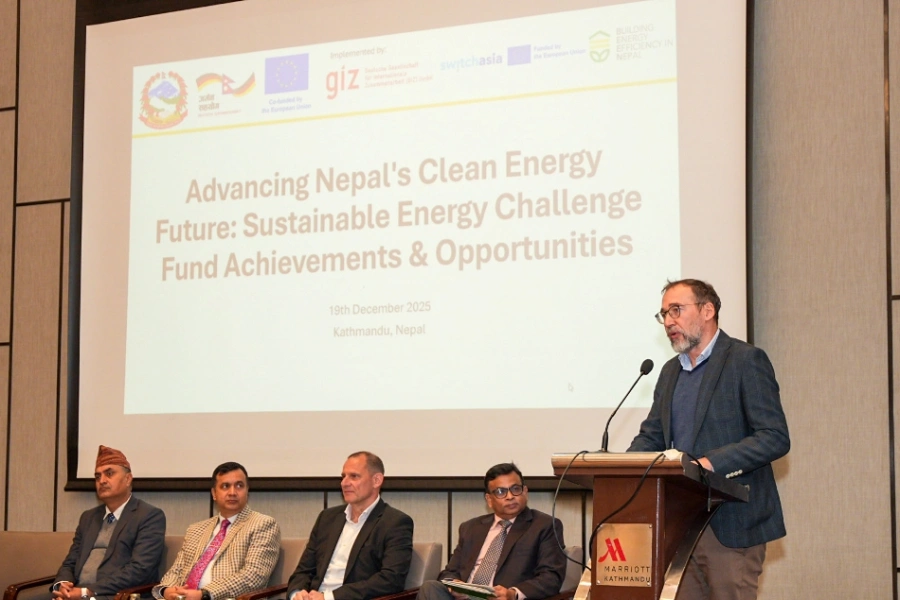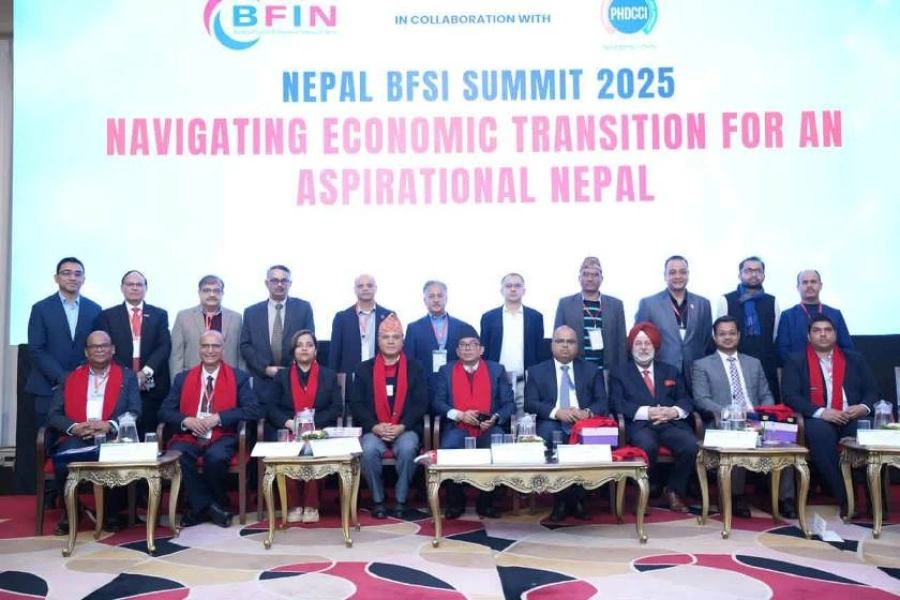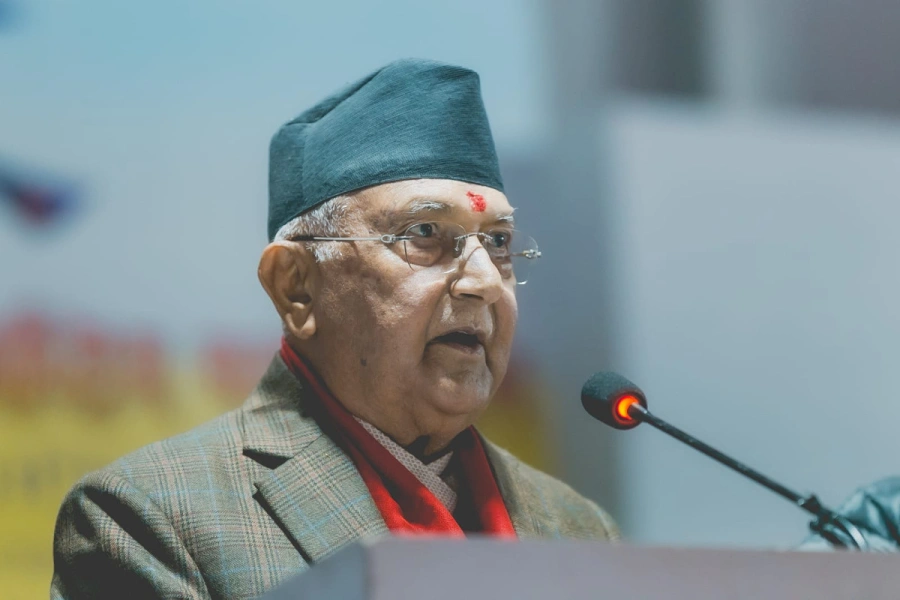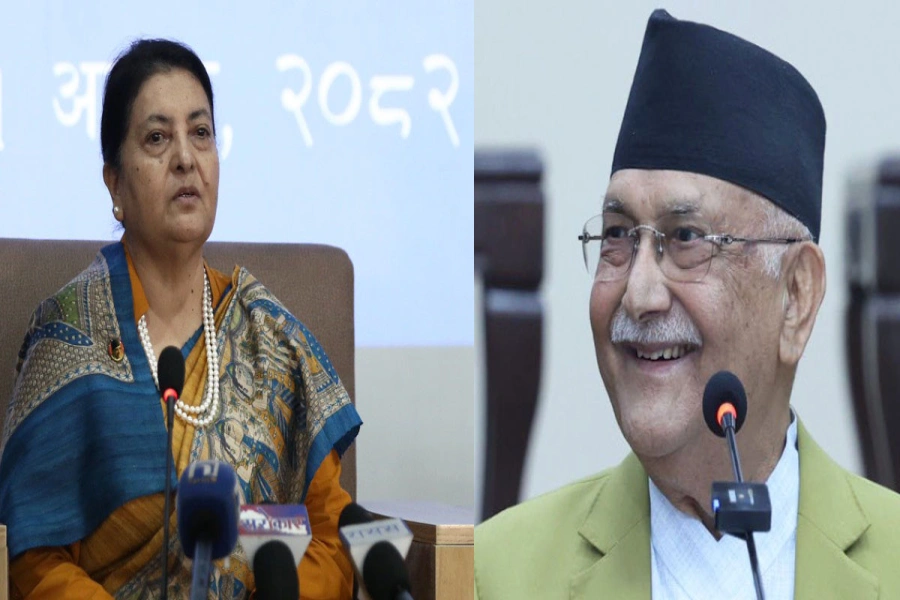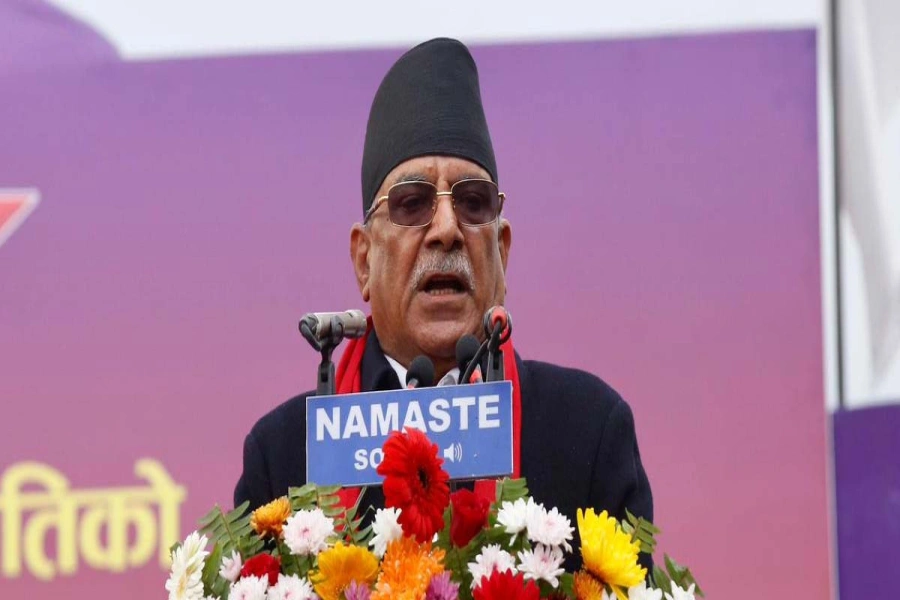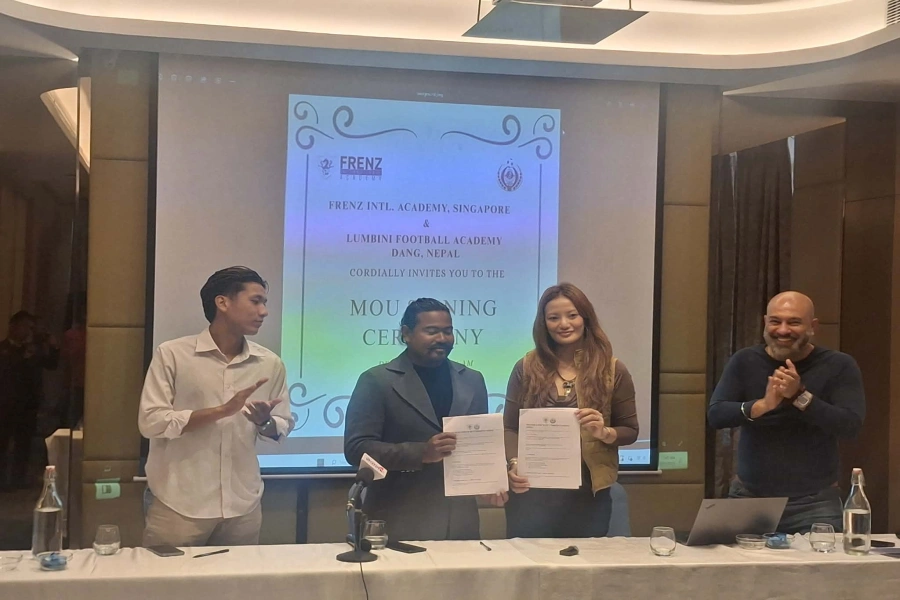KATHMANDU, June 20: Prime Minister KP Sharma Oli has left for China with high hopes as he promises to invite foreign investments to realize the goal he has envisioned for Nepal: ‘A Prosperous Nepal and Happy Nepali’.
Today, the Prime Minister signed over eight agreements in areas of infrastructures, energy and connectivity based on mutual interests that would not hinder Nepal’s sovereignty.
However, Oli’s speech at Nepal-China Business Forum in Beijing was mere ritual and just heightened expectations from China. Here is the speech deconstructed:
Seeking tendency
The agreements, if materialized, will undoubtedly benefit Nepal. However, a closer look into Oli’s speech reflects a ‘seeking tendency’ where other countries would fill in the blanks for Nepal’s development. “We confidently count on Chinese investment in filling our financial as well as technological gap. And, I believe our friend China is willing to do this,” a part of the speech reads.
He goes on to say, “We believe that China, with its huge financial and technological capacity, can help us to transform our development landscape.”
India drops Shubman Gill from T20 World Cup squad

In addition to it, Oli seems to take things for granted, “Being a close and next-door neighbor of China, it is quite natural for Nepal to aspire for partnership with China for mutual benefits.”
Overwhelmed by China, Nepal aspires to replicate
The achievement of China after 1950 AD is worth reckoning. Had Nepal aspired sufficiently, it would have been able to reach similar heights. However, decades of political instability hindered Nepal’s prospects. In China, Oli seems to be so dazzled by its development that he symbolizes Nepal to be close to ‘insignificant.’
“We greatly admire success story of China,” Oli says as he goes all praises for Nepal’s northern neighbor, “many people believe that the success story of the 21st century will be written as the success story of China. Our great friend, China, has astonished the world by attaining unprecedented progress in many spheres. We share the joy of tremendous achievements of China, our close neighbor and true friend. We also cherish China’s positive and influential role in global arena.”
The love for history
A length of Oli’s speech dwells into historical friendship Nepal has shared with China, especially after 1955 AD and lauds the latter for its continued support. Then, the Prime Minister elaborately briefs Nepal’s political context and the verbose—prosperity, development, happy Nepali amongst others. “While we greatly admire success story of China, I do have something to share with you about momentous change that Nepal has undergone in its political history. Having witnessed a long period of conflict and instability, Nepal was successful in promulgating a highly progressive and democratic constitution in 2015,” and it goes on. The love for history goes so much so that it overburdens his speech that was directed toward business communities aiming to increase Chinese investment in the country.
Clear vision, unclear words and poor marketing
Oli’s speech was as vague as it was poor marketing. “My government has a clear vision, straight-forward action plan and strategy, firm commitment, overwhelming mass support and ability to implement the development perspectives. My government is committed to translating people’s aspiration for peace, stability and prosperity into reality,” the speech reads. While the vision seemingly looks clear, the speech is unclear as it fails to convey measures to realize the the vision and assist Nepal to :become a middle-income country by 2030 and graduate from LDC status at an early date.”
Oli recalls the age old cliché, “As you all know, Nepal is located between two vibrant markets of the world, India and China with a population of 2.5 billion,” Oli says.
In addition, while Oli boasted of Duty Free access to China, United States and Europe on more than 1000s of goods, his speech failed to answer why China would miss out if it didn’t invest into Nepal. The fact is Nepal enjoys these accesses because it is a ‘Least Developed Country’.
Despite Oli claiming Nepal to be a “lucrative and virgin land” of opportunities, his words fail to trigger a sense of urgency to rush and invest in Nepal. Rather than dwelling into history, it would have been wise for Oli to focus in his topic for the business sumit.
Oli has repeatedly referenced that the government's goal to ensure prosperity and development was similar to that of Arjun from Mahabharat. "Arjun saw neither the tree, the branches, or the fish. Instead, it saw the fish's eye. That's what we see too," Oli had said. However, it's easier said than done. Prime Minister's speech in China reflects contrary view.
Salient features do not appeal
Oli’s hopes of luring potential investors is equally dry. While he boasts of ample features, he fails to correlate and show how such features would help new investors or existing investors clearly.
“We have low tax slabs, no income tax on earnings of industry exporting its products established in Special Economic Zones for a certain period of time, exemption of tax and tax holidays for certain industries…”Oli says. What rather was required was firm words – how each individual feature would contribute to entice investors come rushing into Nepal.
To sum up, Oli, becoming the most powerful prime minister of the country after decades, must have been able to boast his stature and intrigue investors to actually invest in Nepal.



